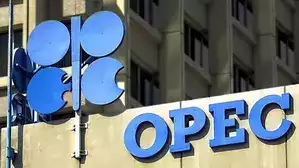
“Most of the consensus for next year is that oil demand will continue to grow. But many also point to strong growth in non-OPEC supply, with many of those scenarios suggesting the growth in non-OPEC supply will largely meet the growth in overall demand,” said Dale. “And that means the scope for OPEC to bring back production is likely to be relatively limited.”
OPEC+, a grouping of nearly two dozen countries led by Saudi Arabia and Russia, has kept its production artificially low, keeping a record 5.8 million barrels per day of supply off the market. It plans to return these supplies to the market, starting October.
“But they will also be nervous about bringing oil back on if they do so in a way, which means that total supply either are growing more quickly than demand and that will lead to instability in the market,” Dale said.
OPEC will continue to wield power in the oil market despite growing supplies from the countries that are not part of the cartel, Dale said. “I think OPEC continues to play a major role within the oil market and I think it will continue to play a major role as far as I can see into the future,” he said.
Demand, supply, the situation in the Middle East and OPEC+ behaviour will weigh on oil prices.
Oil demand over the next decade or so will be more influenced by the efficiencies introduced in internal combustion engines rather than the wider adoption of electric vehicles, Dale said, arguing that EVs would still be a small share of total vehicles on the road despite a growing share of the new sales in a decade. It is in the 2040s that EVs will have a very significant impact on oil demand.
Electric vehicle ownership in China was growing at an “astonishing” pace, Dale said. New energy vehicles accounted for half of all cars sold in China in July. This rapid adoption of EVs has led to projections of petrol sales peaking in 3-4 years in China.
Electric car sales are growing at a far slower rate in India where the government is also encouraging the use of natural gas-powered cars.
Disclaimer: The copyright of this article belongs to the original author. Reposting this article is solely for the purpose of information dissemination and does not constitute any investment advice. If there is any infringement, please contact us immediately. We will make corrections or deletions as necessary. Thank you.





